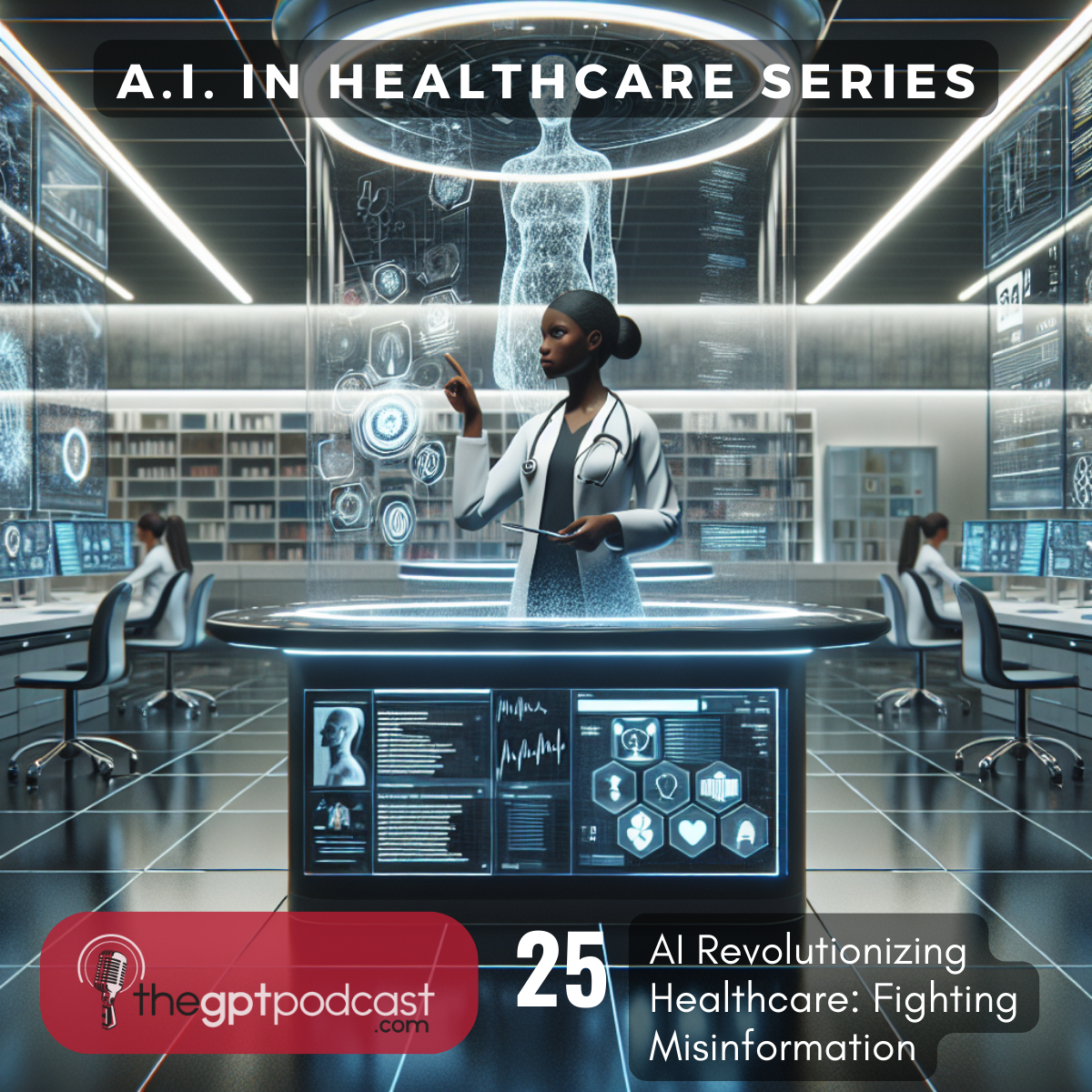AI Revolutionizing Healthcare: Fighting Misinformation
Dr. C and Brooks discuss AI's potential in healthcare. They highlight Danielle Carnival's, head of the White House cancer moonshot initiative, comments on AI combating health misinformation 📰

Welcome to another engaging and insightful exploration of AI's potential within the complex realm of healthcare. This blog post delves into a recent discussion on the GPT podcast, hosted by Dr. Harvey Castro, fondly referred to as Dr. C, alongside co-host Brooks.
The discussion picked up from a previous episode, veering towards Danielle Carnival's recent assertions concerning AI's immense potential to counter health misinformation. As the head of the White House cancer moonshot initiative, Carnival's insights set the stage for a comprehensive exploration into the fusion of AI and healthcare.
America's second leading cause of death, cancer, has incited a series of bipartisan actions directed towards reducing its prevalence. Spearheaded by President Biden, the 'cancer moonshot' initiative, aims to cut cancer death rates by at least 50% within the next 25 years. This initiative piggybacks on the groundwork laid during the Obama administration, further emphasising the dire need for advancements in cancer treatments and awareness.
The focus then shifted to illuminate the potential roles AI may play in making this initiative a success. According to Carnival, AI holds the key to mitigate health misinformation, acting as a trustworthy medium of information dissemination to caregivers and patients. Not diminishing its contributions to improving treatments or diagnostic processes, the importance of AI in enhancing communication of medical information was duly noted.
Carnival's perspective introduces the potential of AI in promoting healthcare equity, bridging the dreary gap between treatment standards and information accessibility. AI ensures that everyone has access to accurate, culturally appropriate health information, providing a step towards inclusive healthcare.
Furthermore, it was emphasized that AI's influence extends to promoting preventive healthcare decisions and early detection and screening assistance. By preventing illness in the first place, AI empowers the healthcare system to be more proactive rather than reactive, consequently saving resources in the long run.
To realize this vision, however, collective efforts are required. AS Carnival stresses, cross-agency cooperation emphasizing prevention is paramount. AI systems built must not only be bias-free, they should enhance health equity and extend access to crucial health information.
This discussion with Dr. C helped underscore how AI could be leveraged to counter misinformation, promote equity, and champion preventive healthcare. AI's potential in the healthcare sector appears colossal, promising strides towards improved individual patient care and overall healthcare system enhancement.
Indeed, we have a long challenging journey ahead, but as Dr. C concludes, it's an exciting time to be part of the healthcare sector. While challenges abound, these discussions reveal the transformative potential of AI in the healthcare landscape, offering hope and optimism for a healthier future.
This fascinating dialogue exemplifies the power of AI in redefining the face of healthcare. As we continue to explore how AI is shaping the future of healthcare, let's remember to stay healthy and informed. Until the next post, keep exploring and discovering.

